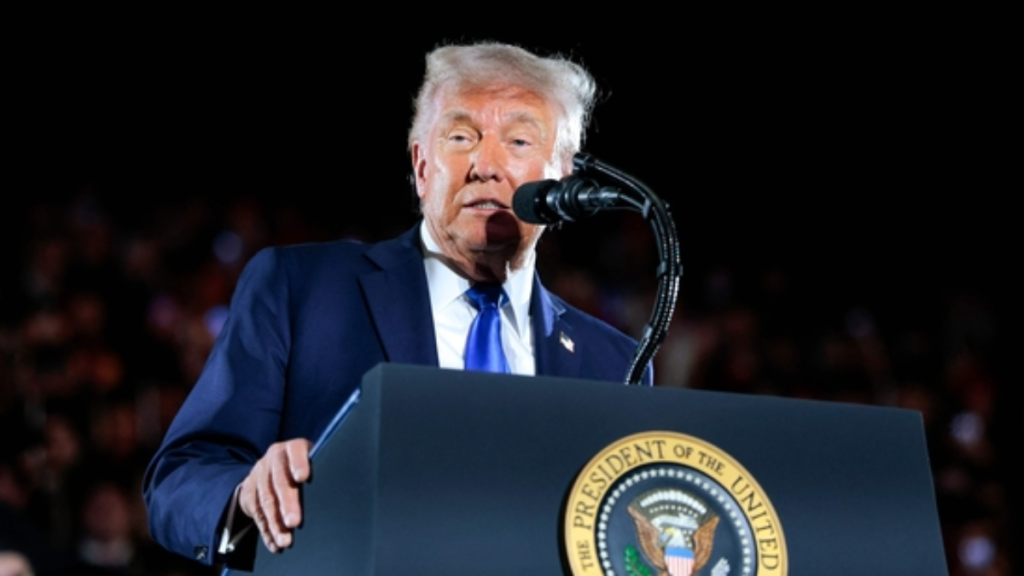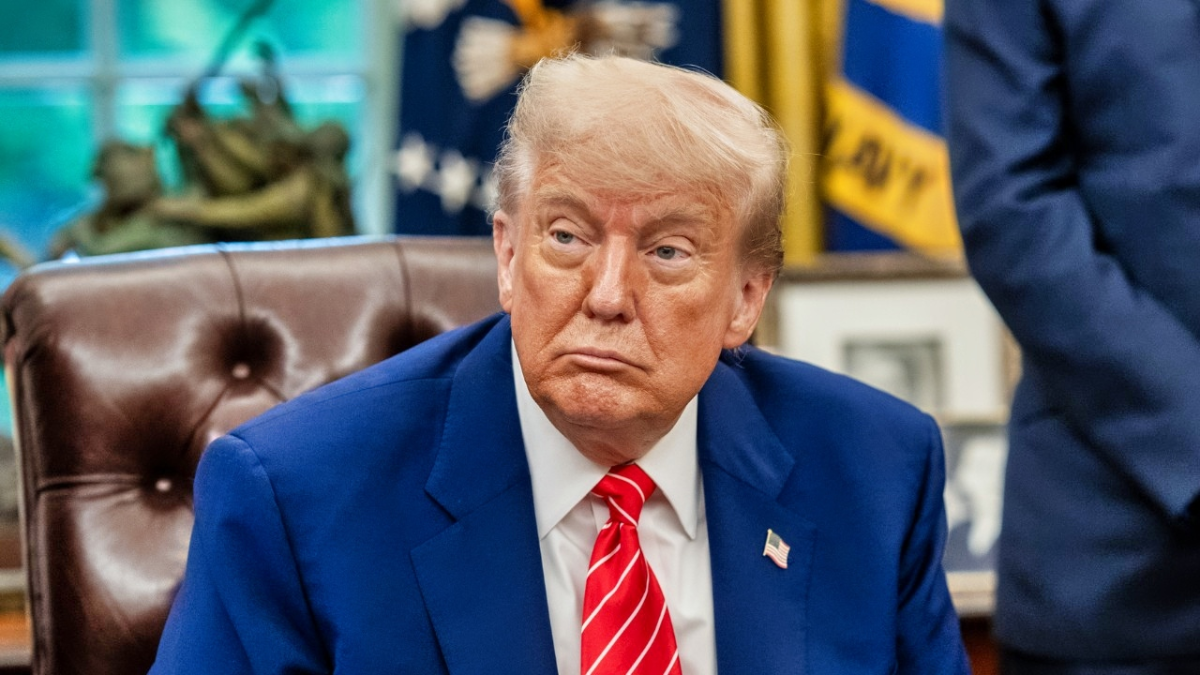WASHINGTON, D.C. — Former President Donald J. Trump is once again facing mounting political and legal scrutiny, as calls for a renewed impeachment inquiry intensify among certain members of Congress following new revelations related to his post-presidency conduct and ongoing criminal investigations.
The controversy centers around Trump’s recent comments, ongoing trials, and claims of interference in governmental functions that critics argue violate his constitutional responsibilities.
Though Trump is no longer in office, congressional figures are exploring whether legislative avenues — including censure, impeachment, or formal investigations — may be warranted based on his actions since leaving the White House.
Renewed Allegations Spark Debate in Congress
The push for new impeachment discussions gained traction after Trump made a series of statements during campaign rallies and interviews that some lawmakers believe suggest an intent to undermine democratic processes or misuse executive power should he regain office.
Specifically, Democrats have raised concerns that Trump’s promises to “seek retribution” against political opponents and his involvement in events surrounding January 6, 2021, may still constitute grounds for constitutional accountability.
Some critics also cite Trump’s ongoing criminal trials — including those involving alleged mishandling of classified documents and obstruction of justice — as relevant to the broader question of fitness for public trust.
Representative Jamie Raskin (D-MD), ranking member of the House Oversight Committee, stated in an interview, “We cannot allow former presidents to act with impunity. The Constitution offers tools — including impeachment — to address misconduct that threatens our republic.”
For a full record of impeachment procedures and legal interpretation, visit the U.S. House Judiciary Committee.
Legal Background: Trump’s Impeachment History
Donald Trump is the only U.S. president to have been impeached twice by the House of Representatives. The first impeachment, in 2019, stemmed from his dealings with Ukraine and allegations of abuse of power. The second, in early 2021, followed the January 6th attack on the Capitol, with the charge of incitement of insurrection.
In both cases, the Senate ultimately acquitted Trump, falling short of the two-thirds majority required for conviction. However, a number of senators — including some Republicans — acknowledged that Trump bore some responsibility for the events of January 6.
Since leaving office, Trump has faced a slew of civil and criminal legal proceedings. He has denied all wrongdoing and claimed that the legal challenges are politically motivated attempts to derail his 2024 presidential campaign.

The Constitutional Question: Can a Former President Be Impeached Again?
While impeachment is traditionally used to remove a sitting official from office, the Constitution does not explicitly prohibit the impeachment of a former president. The U.S. Senate’s second trial of Trump in 2021 occurred after he had already left office, establishing a precedent that post-term accountability is possible.
Legal scholars remain divided. Some argue that repeated impeachment efforts could undermine the process’s legitimacy, while others maintain that such proceedings serve as necessary safeguards against future abuses of power.
Professor Michael Gerhardt, a constitutional law expert at the University of North Carolina, notes, “Impeachment is not just about removal — it’s also about protecting the democratic system and ensuring accountability. If new offenses arise, the House has a duty to consider them.”
The National Archives and Records Administration offers access to the full U.S. Constitution, including Article II, Section 4, which outlines the impeachment process.
Political Calculations and 2024 Implications
With Trump currently the frontrunner for the Republican nomination in the 2024 presidential election, the stakes are high. Any movement toward a new impeachment inquiry could significantly impact the political landscape — potentially galvanizing Trump’s base or weakening public trust in institutions, depending on how it is received.
Republicans have largely dismissed talk of renewed impeachment proceedings as a political distraction. “This is just more political theater from Democrats who fear President Trump’s return to power,” said Representative Elise Stefanik (R-NY), a member of the House GOP leadership.
Still, some moderate Republicans have privately expressed concern that Trump’s continued presence in the political spotlight — especially while under indictment — could hurt the party’s chances in 2024.
A recent Pew Research Center survey found that a majority of Americans support legal accountability for public officials, but are split on whether Trump specifically should face new congressional action.
Can Impeachment Still Serve Its Purpose?
While another formal impeachment of Trump may be unlikely without bipartisan support, the discussions surrounding it reflect broader concerns about presidential power, election integrity, and accountability.
Impeachment — rare and politically fraught — remains one of the most powerful tools Congress holds. The renewed focus on it, even post-presidency, signals a deeper debate over how to respond to behavior that may not align with democratic norms, even after an official has left office.
As investigations unfold and Trump continues to campaign for a second term, lawmakers on both sides of the aisle will be watching closely. Whether or not formal proceedings are launched, the issue will likely remain a prominent feature of the 2024 political narrative.
Final Thoughts
While the road to a third impeachment remains uncertain and politically charged, the very discussion underscores America’s ongoing struggle to define the boundaries of executive accountability — both during and after a president’s time in office.
As legal and congressional scrutiny continues, the question remains: should Trump’s post-presidency actions and rhetoric bring new consequences under the Constitution, or is the nation better served by leaving the matter to voters in the next election?
For the latest updates on presidential accountability and constitutional law, visit USA.gov.
Disclaimer – Our team has carefully fact-checked this article to make sure it’s accurate and free from any misinformation. We’re dedicated to keeping our content honest and reliable for our readers.
